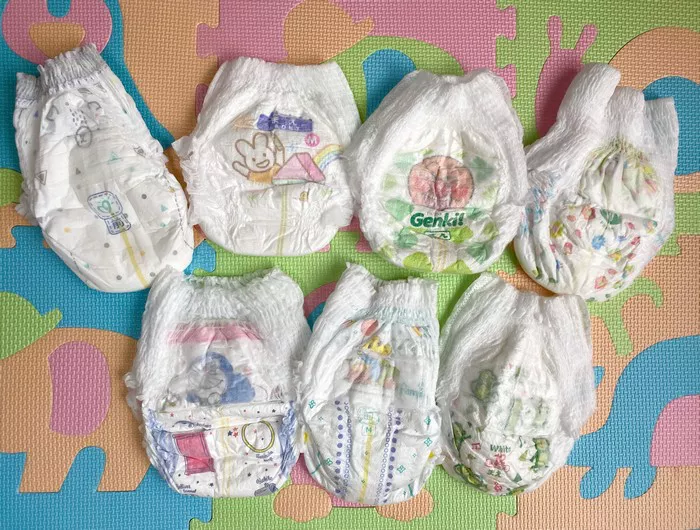Disposable diapers are a cornerstone of modern parenting, offering convenience, absorbency, and comfort for infants and toddlers. However, amidst the flurry of diaper changes and baby care, parents often wonder: do disposable diapers expire? This question is crucial for budgeting, stockpiling, and ensuring the safety and effectiveness of diapering practices. In this comprehensive article, we delve into the science behind disposable diapers, explore factors affecting their shelf life, and provide practical tips for optimizing their use.
Understanding the Composition of Disposable Diapers
To grasp the concept of diaper expiration, it’s essential to understand the construction of disposable diapers. These everyday essentials consist of several layers designed to absorb moisture, prevent leaks, and keep babies dry and comfortable.
1. Top Sheet: The layer in contact with the baby’s skin, usually made of nonwoven fabric or a soft material to wick moisture away.
2. Absorbent Core: This is the heart of the diaper, typically composed of superabsorbent polymers (SAP) and wood pulp. SAP can hold several times its weight in liquid, ensuring efficient absorption and minimizing leakage.
3. Waterproof Layer: Positioned beneath the absorbent core, this layer prevents liquids from seeping out of the diaper, keeping clothing and bedding dry.
4. Elastic Leg Cuffs and Waistband: These components provide a snug fit and help prevent leaks around the legs and waist.
5. Closure Tabs: Used to fasten the diaper securely around the baby’s waist, ensuring a comfortable and customizable fit.
Factors Affecting the Shelf Life of Disposable Diapers
While disposable diapers are designed to be durable and long-lasting, several factors can influence their shelf life:
1. Storage Conditions: Proper storage is critical for preserving the integrity of disposable diapers. Exposure to moisture, extreme temperatures, sunlight, and air can degrade the materials and diminish their effectiveness. Ideally, diapers should be stored in a cool, dry place, away from direct sunlight and humidity.
2. Manufacturing Date and Expiry Date: Many diaper brands stamp a manufacturing date and/or expiration date on their packaging. While these dates offer guidance, they are not always indicative of the diaper’s actual lifespan. Factors such as storage conditions and the quality of materials can impact how long diapers remain viable.
3. Material Degradation: Over time, the materials used in disposable diapers may degrade or break down, affecting their absorbency and structural integrity. This degradation can be accelerated by exposure to heat, moisture, and oxygen.
4. Quality of Materials: The quality of the materials used in diaper production can vary among brands and product lines. Higher-quality materials are often more durable and resistant to degradation, resulting in longer shelf life.
5. Packaging Integrity: Damage to the packaging, such as tears, punctures, or exposure to contaminants, can compromise the hygiene and quality of disposable diapers.
Do Disposable Diapers Have an Expiration Date?
The question of whether disposable diapers have an expiration date is a common one among parents. Unlike perishable goods such as food or medicine, diapers do not typically have a fixed expiration date. Instead, their shelf life is influenced by the factors mentioned above, including storage conditions, material quality, and packaging integrity.
While some diaper manufacturers may print expiration dates on their packaging for reference, these dates are often conservative estimates rather than strict deadlines. In many cases, properly stored diapers can remain usable for extended periods beyond the stated expiration date.
Tips for Maximizing the Shelf Life of Disposable Diapers
To ensure the longevity and effectiveness of disposable diapers, consider the following tips:
1. Store Diapers Properly: Keep diapers in a cool, dry place, away from sunlight and humidity. Avoid storing them in damp basements, hot attics, or other areas prone to temperature fluctuations.
2. Use Sealed Packaging: Whenever possible, keep diapers in their original sealed packaging until ready for use. This helps protect them from moisture, air, and contaminants.
3. Inspect Diapers Before Use: Before using a diaper, inspect it for any signs of damage, such as tears, leaks, or unusual odors. Discard any diapers that appear compromised.
4. Rotate Stock Regularly: If you’re stockpiling diapers, be mindful of rotation to ensure that older stock is used first. This helps prevent diapers from sitting unused for extended periods.
5. Consider Alternative Uses: If you find yourself with surplus diapers nearing their expiration date, consider repurposing them for non-diapering purposes, such as cleaning up spills or padding fragile items during storage or moving.
By following these tips, parents can prolong the shelf life of disposable diapers and maximize their value and effectiveness.
Conclusion
While disposable diapers do not have a fixed expiration date, their shelf life can be influenced by various factors, including storage conditions, material quality, and packaging integrity. By understanding these factors and taking proactive steps to preserve the integrity of diapers, parents can ensure that their diapering supplies remain reliable and effective for their little ones. Whether you’re a new parent stocking up on essentials or a seasoned caregiver managing a diaper stash, these insights can help you make informed decisions about diaper storage and usage.


